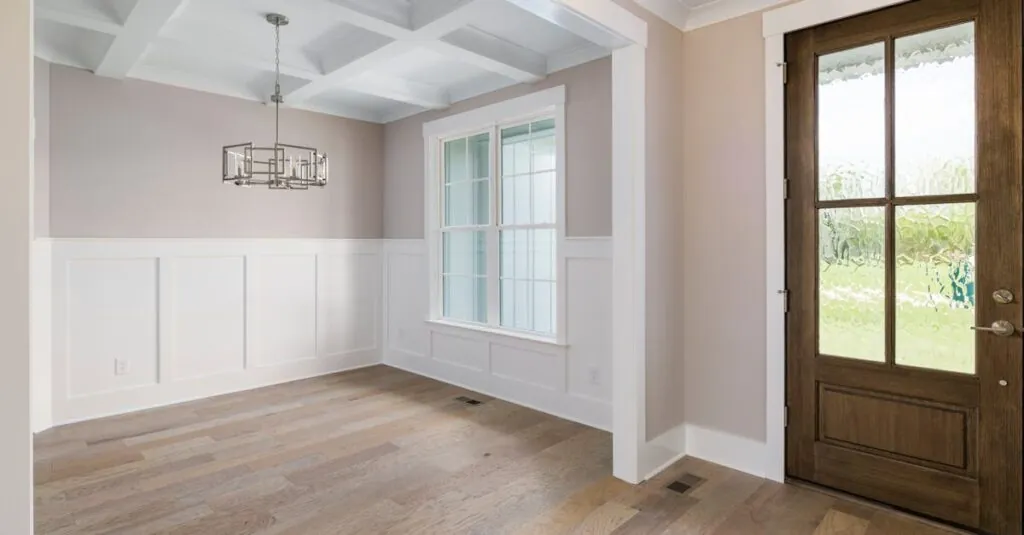Table of Contents
ToggleWhen it comes to vacation homes, the age-old debate of renting versus buying can feel like choosing between a beach umbrella and a sun hat—both have their perks, but only one might keep you from getting burned. Imagine sipping your morning coffee on a sun-soaked balcony, but wait—are you paying for someone else’s dream, or investing in your own slice of paradise?
Renting offers flexibility and the thrill of new destinations, while buying promises a cozy retreat that’s always ready for your next escape. But before diving into the real estate pool, it’s crucial to weigh the pros and cons. After all, nobody wants to end up with a vacation home that feels more like a vacation from sanity. Let’s explore the ins and outs of this decision so you can make a choice that won’t have you crying into your piña colada.
Overview of Renting vs Buying a Vacation Home
Renting a vacation home offers immediate access without the commitment of ownership. Flexibility plays a significant role, as renters can choose different locations each year. Exploring diverse destinations becomes easier when avoiding long-term financial ties. Costs associated with travel can remain predictable, allowing renters to budget effectively for different experiences.
Purchasing a vacation home provides a sense of permanence and stability. Ownership allows individuals to create lasting memories without the need to rebook year after year. Property appreciation can also be a factor, as real estate may increase in value over time. Tax benefits are possible with ownership, making it an appealing option for some individuals.
Both options have their drawbacks. Renting might lead to higher costs in the long run, especially for frequent travelers. Limited availability during peak seasons can affect renters, as desirable properties may not be accessible when needed. On the other hand, buying requires substantial upfront investment and ongoing maintenance expenses. Responsibilities like property management can detract from the joy of ownership.
Ultimately, personal preferences and goals dictate the best choice. Individuals prioritizing flexibility and variety may lean toward renting. In contrast, those valuing stability and investment may prefer purchasing a property. Assessing financial capabilities, lifestyle preferences, and long-term plans helps clarify the ideal path forward.
Advantages of Renting a Vacation Home
Renting a vacation home offers various benefits that cater to diverse lifestyles and preferences. This option emphasizes flexibility and lower initial costs.
Flexibility and Freedom
Renting a vacation home provides unparalleled flexibility. Travelers can choose different locations depending on their mood or season without the commitment of ownership. Exploring new destinations becomes easier through renting, as it opens up various opportunities for adventure. Each trip can differ in amenities, culture, and scenery. Flexibility in rental terms allows for short stays, long vacations, or weekend getaways based on personal schedules. Seasonal changes can dictate rental decisions. Frequent travelers gain the freedom to adapt plans without the burdens associated with property management.
Lower Initial Costs
Lower initial costs characterize renting vacation homes. Prospective renters avoid hefty down payments required for purchasing property. This option eliminates significant financial commitments upfront. Expenses associated with closing costs or extensive repairs are absent in rentals. Budgeting becomes straightforward since rental fees typically cover utilities and maintenance. Travelers can allocate resources toward enriching experiences, dining, or activities. Lower financial entry also minimizes risk, allowing for seasonal exploration. For individuals hesitant about long-term investments, renting represents a financially sound alternative.
Benefits of Buying a Vacation Home
Purchasing a vacation home offers distinct advantages. Individuals secure a permanent escape while building equity.
Long-Term Investment Potential
Buying a vacation home provides significant investment potential. Real estate often appreciates over time, translating into increased property value. According to the National Association of Realtors, vacation home sales have consistently risen, indicating strong market demand. Owners can benefit from rental income during off-peak seasons, further offsetting costs. Additionally, property ownership can yield tax benefits, such as deductions on mortgage interest. Long-term appreciation and potential rental yield make buying an attractive opportunity.
Personalization and Control
Ownership enables complete customization and control over the property. Buyers can design spaces to reflect personal style and preferences. They decide on renovations and improvements, enhancing comfort and functionality. Personal use of the property at any time eliminates the hassle of booking or availability issues. They can create lasting memories without limitations imposed by rental agreements. Owning a vacation home allows for deeper emotional connections, creating a true sense of belonging in the chosen location.
Factors to Consider
Choosing between renting and buying a vacation home involves several critical factors. Assessing these aspects can significantly impact the decision-making process.
Location and Market Trends
Location plays a vital role in evaluating vacation property options. Accessibility to popular attractions influences rental prices and purchase potential. Analyzing local market trends helps determine whether buying aligns with financial goals. Buyers should consider areas with consistent demand to ensure property appreciation. Renting in a desirable location provides instant access without financial commitments. Market fluctuations affect both rental costs and real estate investments; understanding these trends aids smart decisions for short-term and long-term planning.
Usage and Lifestyle Preferences
Usage patterns greatly influence choices between renting and buying. Individuals who travel sporadically may find renting more convenient and economical. Ownership suits those who frequently visit the same location, facilitating long-term security. Lifestyle preferences dictate the level of property management desired; owning a vacation home requires time and effort. Renters enjoy flexibility, allowing exploration without the burden of upkeep. Long-term goals also help shape preferences; some prioritize personal enjoyment, while others may favor investment opportunities. Matching property options with lifestyle ensures a fulfilling vacation experience.
Deciding between renting and buying a vacation home ultimately hinges on individual preferences and circumstances. Those who cherish flexibility and the thrill of new experiences may find renting to be the ideal choice. It allows them to explore various destinations without the burdens of ownership.
Conversely, for those seeking stability and long-term investment opportunities, purchasing a vacation home can provide a sense of permanence and the chance to build equity. Each option presents its own set of advantages and challenges.
Carefully weighing these factors will empower individuals to make a choice that aligns with their lifestyle and financial goals, ensuring their vacation experience is both enjoyable and fulfilling.







